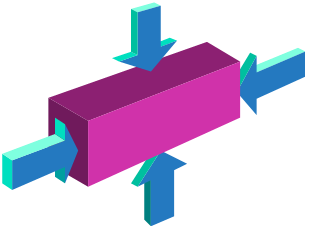Linklaters
 This is a sample of our (approximately) 7 page extended Concurrent Liability Vicarious Liability notes, which we sell as component of the Torts Law Notes collection, a 78 package written at University Of New South Wales in 2009 that consists of (about) 121 pages of notes across 16 unique documents. Finally, the respective tests for remoteness demonstrate further distinctions involving claims in tort and in contract. The tort duty as modified by the contractual agreement in between the parties may well be raised in a case exactly where the limitation period for an action for breach of contract has expired but the limitation period for a tort action has not.
This is a sample of our (approximately) 7 page extended Concurrent Liability Vicarious Liability notes, which we sell as component of the Torts Law Notes collection, a 78 package written at University Of New South Wales in 2009 that consists of (about) 121 pages of notes across 16 unique documents. Finally, the respective tests for remoteness demonstrate further distinctions involving claims in tort and in contract. The tort duty as modified by the contractual agreement in between the parties may well be raised in a case exactly where the limitation period for an action for breach of contract has expired but the limitation period for a tort action has not.
To illustrate the similarities and variations amongst actions in contract and tort, I will be taking two potential claims for a case study: construction negligence (primarily based upon a failure to take care when constructing a creating) and solicitor negligence … Read the rest >>>

 Earlier this year, the UK Court of Appeal was known as on to take into account an crucial query dealing with concurrent liability in contract and tort. In this scenario, like the initially, there is little point to suing in tort mainly because the tort duty (and consequently any tort liability) is restricted by the specific limitation agreed upon by the parties (BG Checo, para 18). The impact for a prospective claimant is that they could have more achievement in bringing a claim in tort than they would in contract if it is unclear regardless of whether the parties had viewed as a potential outcome. Following a construction error or the wrongful assistance, there are two prospective avenues for pursuing a breach of contract claim.
Earlier this year, the UK Court of Appeal was known as on to take into account an crucial query dealing with concurrent liability in contract and tort. In this scenario, like the initially, there is little point to suing in tort mainly because the tort duty (and consequently any tort liability) is restricted by the specific limitation agreed upon by the parties (BG Checo, para 18). The impact for a prospective claimant is that they could have more achievement in bringing a claim in tort than they would in contract if it is unclear regardless of whether the parties had viewed as a potential outcome. Following a construction error or the wrongful assistance, there are two prospective avenues for pursuing a breach of contract claim.






